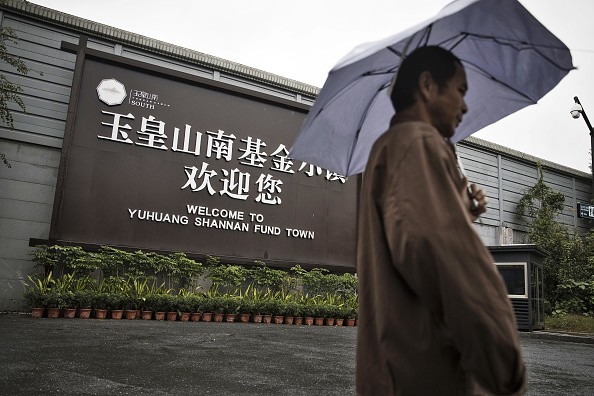China has turned an ancient Song dynasty site into an exclusive enclave for its hedge fund managers, patterned after the famous Greenwich Village in Connecticut where Wall Street professionals, money managers and financial experts reside.
Yuhuang Shannan, located between the Qiantang River and Jade Emperor Hill, is a gated community within Hangzhou, a metropolis of 9 million people.
According to Bloomberg, only resident finance managers and their guests are currently allowed entry into Yuhuang Shannan, a hour away from Shanghai by high-speed train.
The private village, formerly a design hub, has villa-style office buildings with trading terminals and a view of the waterfront. It has its own primary school with non-Chinese teachers, a modern medical center and a club for after-work socializing.
In 2016, the total number of hedge funds in the country doubled while managed assets have tripled in the past two years, the report said.
When the village was rebranded in May 2015, local authorities said that more than 1,000 hedge funds and private equity funds that managed a total of 580 billion yuan ($84 billion) funds have registered in the village, more officially called Yuhuang Shannan Fund Town.
Yuhuang Shannan has one of the country's largest hedge fund clusters, outside of Beijing, Shanghai and Shenzhen, according to the report.
Recently, former employees of Goldman Sachs and Bank of America Merrill Lynch moved to the place. A representative of Bridgewater Associates, the world's largest hedge fund firm also recently visited Yuahuang Shannan.
"The natural environment is fantastic, and I believe the cluster effect will become stronger and stronger," Ted Wang, a former co-head of equities trading for the Americas at Goldman Sachs who now runs Puissance Capital Management, said. Two of Wang's Chinese equity funds are registered in Yuhuang Shannan.
It was only in 2012 when hedge funds were officially recognized in the country as the government focused more on development plans for the middle and lower classes. Now, with support from securities regulators and the liberalization of equity and bond markets, the hedge fund industry is booming.
China's policymakers look at hedge funds as contributors to the economy, despite some scandals, which included a high-profile case of market manipulation.
The long-term future of Yuhuang Shannan and 15 other smaller towns in the country may depend on what the Chinese economy will become in the next five years, the report said.
Policymakers said that Yuhuang Shannan reflects the transformation of China from manufacturing into a service and consumer economy, which they call as an example of the "characteristic small towns."
Yuhuang Shannan, like other fund towns, was created to nurture and develop businesses. Fund towns have a rapidly developing environment that create high-skilled jobs and provide options for local investment.
Zhu Congjiu, a vice governor of Zhejiang province, said in a speech in November that hedge funds are relevant to the country's major development plans, which include Yuhuang Shannan and Hangzhou.
According to Wang of MD Grand Investments, the town will serve as the country's launchpad for bigger plans in the future.
"When you're still a small firm, even if you venture into Beijing or Shanghai, it's hard to reach out to the right funding partners," Wang said. "It's easier to talk with banks and brokerages as a member of a fund town. If you're not in a center of funds, you'll be ignored-the last thing you want as a startup."



























